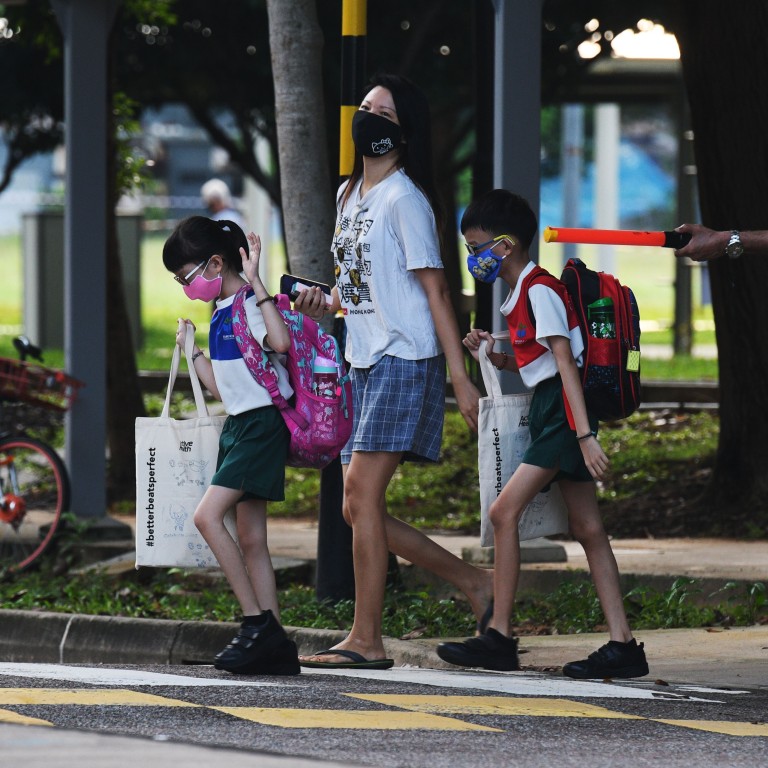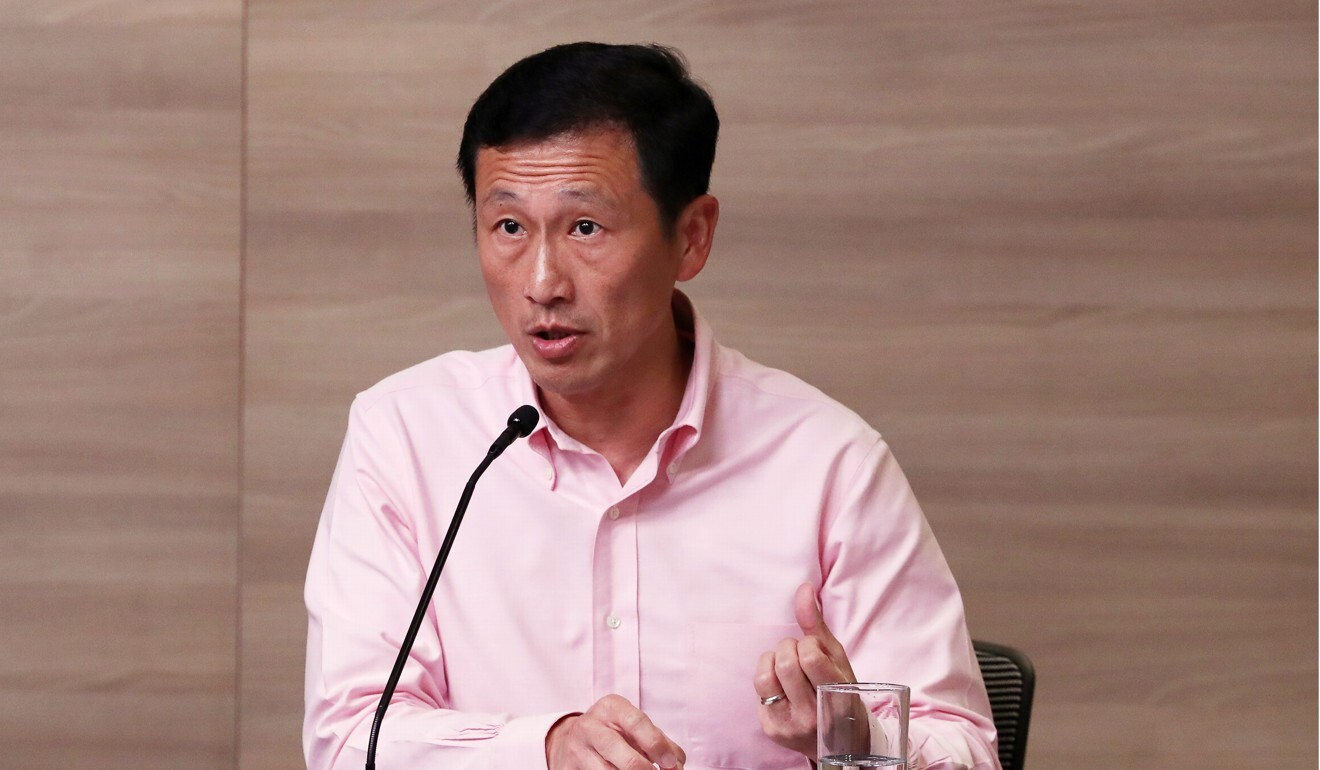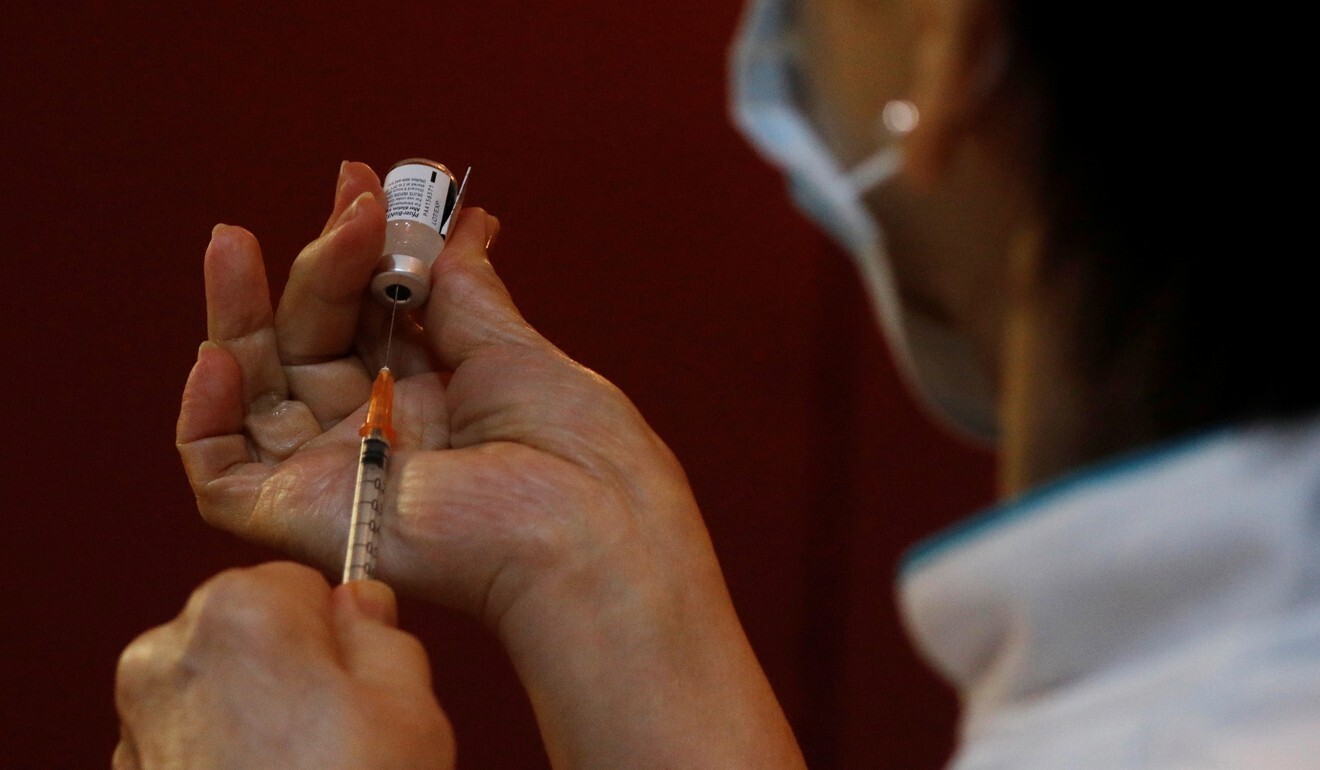
Coronavirus: Singapore shifts to online classes from May 17 amid fears B.1.617 variant ‘affects children more’
- The 38 cases reported on Sunday mean Singapore has racked up 193 domestic infections this month, compared to 55 in April and just nine in March
- Many new cases in recent weeks have tested positive for the B.1.617 coronavirus variant that appears to be more transmissible

Health Minister Ong Ye Kung said the B.1.617 strain “appeared to affect children more” – motivating the decision to close schools from Wednesday, with all primary, secondary and junior college students shifting to full home-based learning until May 28.
While the current social distancing restrictions have banned dine-in services and require all employees to work from home, preschools and student care centres will remain open to support parents who need to be in the workplace.
Education Minister Chan Chun Sing had earlier said there were plans for children under 16 to be vaccinated. The ministries of education and health were working out plans for the “vaccination of our students”, he wrote on his Facebook page. “Once the approval for use is granted, we will roll out vaccinations to those below 16.”
What we know about the B.1.617 coronavirus variant sweeping across South Asia
He pointed to scientific evidence showing it was “reasonable” for the second dose to be given later without it materially affecting the vaccine’s efficacy. Instead of people receiving two shots 21 or 28 days apart, they could wait up to six to eight weeks for the second dose under the proposal.
Singapore currently uses two-shot vaccines from Pfizer-BioNTech and Moderna and anyone above the age of 44 can sign up to be vaccinated. As of May 13, about one-third of the city state’s 5.7 million population had received at least one vaccine dose, while 22.8 per cent of the population are fully vaccinated.

Ong said those who have been fully vaccinated included frontline workers and others vulnerable to becoming very sick from Covid-19. As the country continued with vaccinations, one possibility it was weighing was to give as many people as possible a “good level of protection against Covid-19”, he said.
“This means giving as many people as possible one dose of Covid-19 vaccination … this is something we are studying,” Ong said, adding that more details would be released later and those had already booked their second shots would not be affected.
A study of 175 vaccine recipients older than 80 found delaying the second dose boosted antibody responses more than threefold in fully vaccinated individuals, according to a report in the scientific journal Nature.
What Asia’s scramble for mRNA production facilities means for the future
Asked for an update on Singapore’s vaccine supplies, Ong said the country had received a “steady stream of supplies” but the pace of its vaccination campaign was constrained by the arrival of doses.
“If we have a lot of supplies, of course we will do it faster but we will need to administer doses based on the arrival of supplies,” he said, adding that observations of vaccinated people showed they exhibited less severe symptoms of Covid-19 if they contract it and did not have to be treated in the intensive care unit.
Meanwhile, Sunday’s case numbers bring the seven-day moving average of unlinked cases in the city state to 4.57, putting the Singapore-Hong Kong quarantine-free travel bubble in a precarious position. Just five unlinked cases in Singapore on Monday would take the seven-day moving average to above five – beyond the limit at which the bubble’s suspension mechanism would kick in.
Ong said the new transport minister, S. Iswaran, was fully aware of the situation and would make a decision in the coming week.
Additional reporting by Dewey Sim

